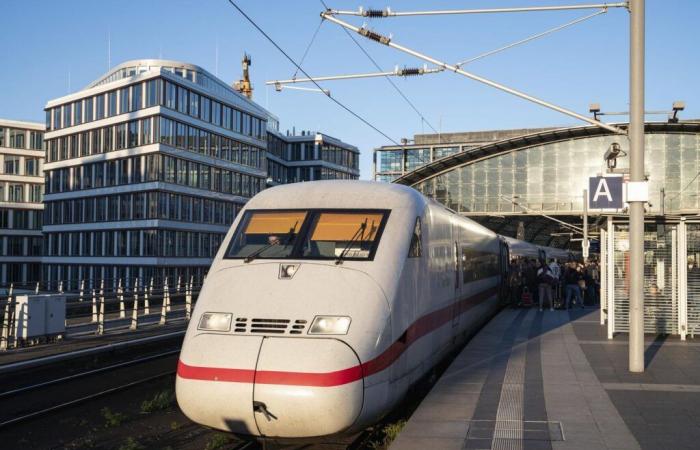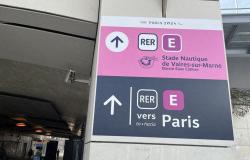After the night train last year, a new rail connection is appearing between Paris and Berlin this Monday, December 16. Once a day, a German high-speed train ICE (InterCity Express) will connect the French capital to Berlin, via Strasbourg, Karlsruhe, Frankfurt. Another train will make the opposite journey, at the same frequency.
This new means of transport will have to compete with those already existing. Will it be faster, cheaper, more ecological than the plane and the bus?
► Travel time
With the new high-speed rail connection, a train will depart every morning from Paris (Gare de l’Est) at 9:55 a.m. to arrive in Berlin at 6:03 p.m. In the opposite direction, departure will be at 11:54 a.m. for an arrival in Paris at 7:54 p.m. So allow around eight hours to make this journey between the two capitals, compared to just over twelve hours by night train.
A real time saving compared to the bus journey, which lasts at least 12 hours 35 minutes and on average 15 hours, even if this mode of transport offers greater flexibility with around twenty daily departures.
To travel the thousand kilometers that separate Paris and Berlin, going by air is still the quickest, since a direct flight lasts around 1 hour 45 minutes. However, you must add the transport time to the airport, that of baggage check-in and going through security checks.
► Carbon footprint
If the plane is the fastest mode of transport to connect the French and German capitals, it is certainly not the most ecological. A Paris-Berlin return flight emits on average 450 kg of CO2 per passenger, according to the Ecological Transition Agency (Ademe), compared to only 6 kg for the train, or 75 times less. The same trip made by bus releases 62 kg of carbon dioxide per passenger.
Data to take into account in the fight against climate change. Indeed, to limit the increase in global temperature to 1.5°C compared to the pre-industrial era, experts estimate that the carbon footprint of each human must fall below 2 tonnes of CO2 per year by to 2050. That is the equivalent of only four Paris-Berlin round trips by plane (not counting any other form of pollution).
► Prix
It is difficult to compare the prices of a Paris-Berlin journey as they are so volatile. Airlines, railways and coach operators now use yield managementa pricing system that modulates prices based on occupancy level.
The bus and the plane offer the most attractive call prices, between €30 and €45, compared to €59.99 for the new rail link set up by SNCF and Deutsche Bahn. But these prices are only valid outside of school holidays and when planning your journeys.
A return flight or bus ride between the two capitals during the Easter holidays already costs more than €100. The TGV competes with these prices if passengers have a reduction card, but not for those who pay full price. In this case, the return ticket exceeds €200.






